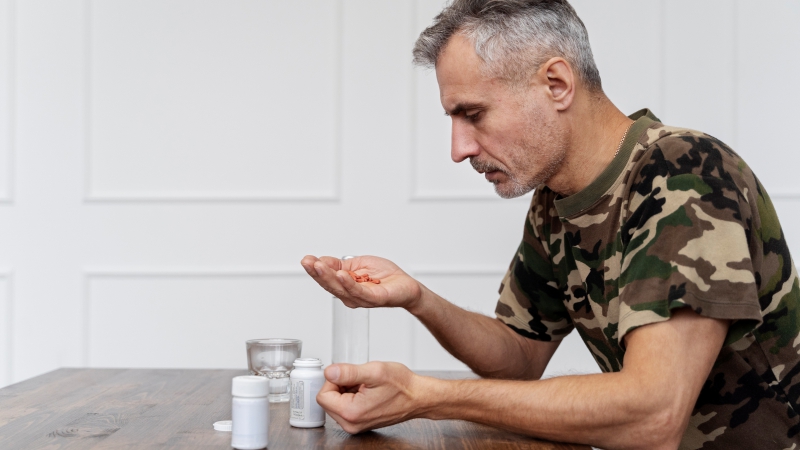Antidepressants are prescription-based medicines used to treat moderate to severe depression. The commonly prescribed drugs belong to the class of selective serotonin reuptake inhibitors (SSRIs) and serotonin and norepinephrine reuptake inhibitors (SNRIs).
Doctors generally prescribe antidepressants to treat obsessive-compulsive disorder (OCD) and generalized anxiety disorder.
Antidepressants are mostly available in the form of oral tablets or capsules. Common antidepressants include:
- Fluoxetine (Prozac)
- Citalopram (Celexa)
- Escitalopram (Lexapro)
- Paroxetine (Paxil)
- Sertraline (Zoloft)
- Venlafaxine (Effexor)
Antidepressants don’t show the euphoric effects other drugs have. In other words, antidepressants cannot get you high. But still, some people keep on trying and do not stop. Some people think that as antidepressants improve mood, high doses should necessarily induce euphoria, but that is not how the drugs work.
Antidepressant shows its action over a period of time. Antidepressants accumulate in the brain. They don’t produce instantaneous effects. It can take over a period of one month before an antidepressant starts producing its action.
Most antidepressant abuse occurs when normally people increase their prescribed dose when they feel like the drug isn’t working fast enough. Some people combine antidepressants with other substances like alcohol in order to increase the medicine’s effects.
Over a period of time, antidepressants can stop producing the desired action for those who truly need them. This can lead to some people using this medicine to increase their doses when they can’t obtain the relief they need on the dose which was prescribed by the doctor.
Like most drugs, taking large doses of antidepressants can be hazardous. People abusing antidepressants increase their risk of suffering from a drug overdose.
Signs of an overdose of antidepressant medicine include:
- Diminished coordination
- Confusion
- Fainting
- Uncontrollable shaking
- Dizziness
- Irregular heartbeat
Common Drug Combinations
Alcohol is one of the most common substances that is consumed along with antidepressants. Doctors recommend avoiding alcohol while on treatment with antidepressants. People who already suffer from another addiction, such as alcoholism, have a higher chance to abuse antidepressants.
A combination of alcohol and antidepressants can lead to problems such as:
- Aggravated depression or anxiety
- Strong drowsiness
- Dangerously high blood pressure
- Impaired coordination
Overdose
Some people do not patience to wait for their antidepressants to start producing their action. Due to this lack of patience, people suffering from depression may self-medicate with other drugs such as marijuana and opiates.
It can be very difficult and dangerous to quit antidepressants, especially if a doctor prescribed them. Ceasing the use of any antidepressant requires careful medical supervision. It is highly important and essential not to stop any antidepressant without consulting a doctor. If you think antidepressants have taken control of your life, take an appointment with addiction specialists or contact your general physician first.
While some antidepressants can be stopped suddenly and do cause any problems, others need to be slowly weaned down while the body adjusts itself to no longer having it. It also commonly depends on the dose you’re taking thus the doctor will also have to take this into consideration.
Unlike alcohol, heroin, or nicotine, antidepressants are not addictive because the person suffering from depression does not need to keep increasing the dose to get the same effect and people will crave them if they stop taking them.
Do not confuse withdrawal symptoms with addiction. If you stop taking antidepressants too quickly, you develop withdrawal symptoms which are not the same as addiction. Thus antidepressants do not cause addiction.
